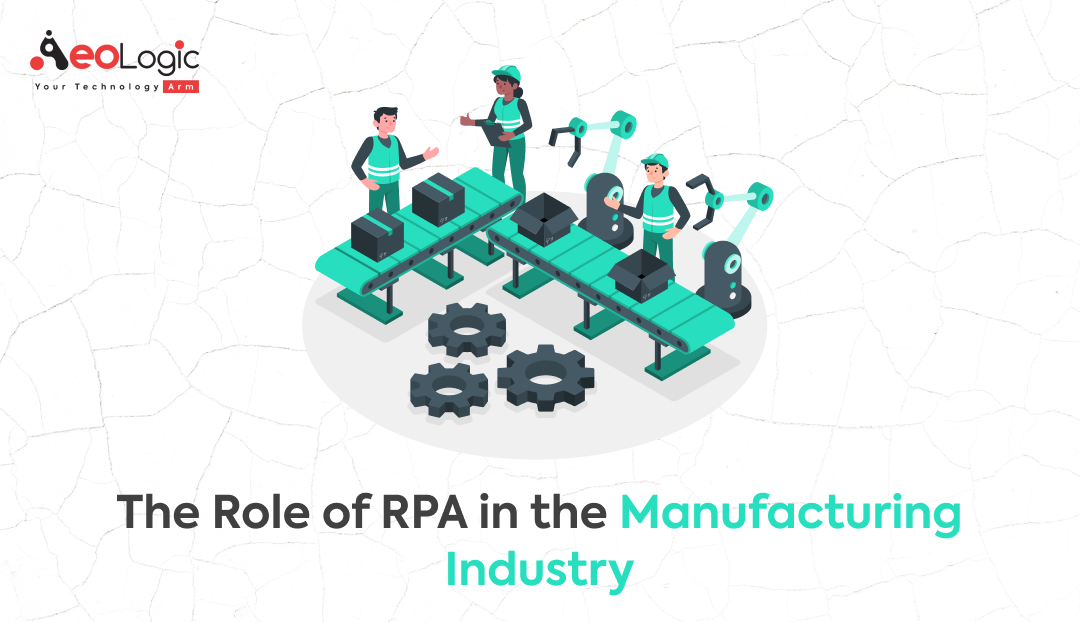Welcome to the age of robots, where automation is not a sci-fi fantasy but a concrete reality. From your morning coffee machine to the Tesla cars whizzing by, automation has subtly infiltrated our lives in ways unimaginable a few decades ago. Nowhere is this more apparent than in the manufacturing industry. The revolutionary technology of Robotic Process Automation (RPA) in manufacturing is transforming the way factories operate. It’s about time we take a deep dive into understanding this fascinating subject.
Overview
Automation isn’t a new concept; it dates back to the Industrial Revolution when machines began to take over tasks traditionally done by humans. But the latest surge of advanced technologies like RPA in manufacturing industry settings has catapulted the capabilities to a whole new level.
According to a report by the McKinsey Global Institute, automation could raise productivity growth globally by 0.8 to 1.4 percent annually. For the manufacturing sector alone, this could translate to billions in additional revenue.
What is RPA?
RPA, or Robotic Process Automation, is a technology that uses software robots to automate repetitive, rules-based tasks performed by humans. Unlike traditional automation that focuses on machinery, RPA centers on business processes. This makes autmation in the manufacturing industry highly efficient for tasks like data entry, inventory management, and compliance reporting.
Also Read: The Future of Big Data in Automation Industry
How Does Automation Work in the Manufacturing Industry?
Automation in manufacturing usually works through a combination of software, hardware, and algorithms. Industrial robots handle a variety of tasks ranging from assembling products, painting, welding, and packaging. When it comes to RPA in the manufacturing industry, the focus shifts to automating routine, mundane tasks.
| Technology | Role in Manufacturing | Examples |
|---|---|---|
| Industrial Robots | Physical labor | Assembling, welding |
| RPA Software | Data handling, monitoring | Inventory management, quality checks |
| AI & ML Algorithms | Decision-making | Predictive maintenance, analytics |
What are the Benefits of RPA in Manufacturing?
If you’re reading this article, you’ve probably already been introduced to the buzzword of the decade: RPA. The Robotic Process Automation (RPA) revolution has opened up countless avenues for industries worldwide, but its impact on manufacturing is particularly transformative. So, what are the top 5 benefits of employing RPA in the manufacturing industry? Let’s dive in.
1. Streamlined Operations
RPA can automate routine processes in the manufacturing workflow, such as data entry, sorting, and simple decision-making tasks. This type of automation allows human employees to focus on more complex, value-added activities. For instance, while RPA takes care of materials tracking and order processing, human workers can concentrate on strategic planning and quality control.
Streamlining these operations reduces the time taken for product development and market launch, thereby boosting the speed-to-market capability. This means companies can adapt more rapidly to market demands, giving them a competitive edge.
2. Data Accuracy and Compliance
In manufacturing, there’s often a labyrinth of regulations and compliance standards to navigate. RPA bots can be programmed to manage these complex tasks, ensuring that all data handling and processing are compliant with industry standards and laws. This is particularly beneficial for highly-regulated sectors like pharmaceuticals and automotive manufacturing.
By enhancing data accuracy and compliance, companies can avoid hefty fines and legal complications. Accurate data also forms the basis for analytics and insights that drive business decisions.
3. Scalability and Flexibility
RPA systems are designed to scale with your business. Whether you’re looking to expand your product line, break into new markets, or integrate new technologies, RPA can easily adapt. The bots can be reprogrammed to take on new tasks or handle larger volumes of work as needed.
This scalability means that investments in RPA technology have long-term value. Companies can start with a small-scale deployment and expand as they see the benefits, making it a flexible solution for businesses of all sizes.
4. Cost Savings
By taking over routine and repetitive tasks, RPA reduces the need for additional manpower, leading to significant cost savings. While there’s an initial investment for setting up RPA systems, the long-term operational costs are substantially reduced.
For instance, the average salary for an operations manager in the United States is approximately $65,000 per year. If an RPA system can take over even a fraction of the tasks performed by a team of operations managers, the cost savings could be substantial.
5. Enhanced Customer Experience
While RPA operates behind the scenes, its impact on the customer experience is anything but inconspicuous. By ensuring timely deliveries, maintaining product quality, and enabling quick response to customer queries, RPA creates a smoother, more reliable experience for the end-user.
A satisfied customer is likely to return, recommend your product or service to others, and leave positive reviews. These actions contribute to brand loyalty and help to attract new customers, thereby increasing market share and revenue.
Also Read – Digital Adoption Advantages for Manufacturers
RPA Use Cases & Examples in the Manufacturing Industry
While we’ve already touched on the transformative power of RPA in the manufacturing industry, it’s essential to delve deeper into real-world examples and use cases to truly understand its scope. The following are some exciting and impactful ways that RPA is making a mark in manufacturing.
1. Inventory Management
Inventory management is a tedious yet critical component of manufacturing. Through RPA, the task of monitoring stock levels, reordering supplies, and updating records can be fully automated, allowing human workers to focus on more strategic tasks.
2. Quality Control
Quality checks often require repetitive and meticulous work, perfect for automation. RPA software can be programmed to conduct these checks consistently, reducing the number of defective products and ensuring higher quality standards.
3. Invoice Processing
Invoicing can be a long and complicated process that involves extracting data from various sources and entering it into an accounting system. With RPA, all these activities can be automated, increasing speed and accuracy in billing processes.
4. Predictive Maintenance
RPA, coupled with machine learning algorithms, can predict when a machine is likely to fail by analyzing historical data and real-time metrics. This allows for preemptive maintenance, reducing downtime and extending the life of the machine.
5. HR and Payroll
Yes, RPA’s reach even extends to administrative functions like HR and payroll within the manufacturing industry. Automating these processes can significantly reduce the administrative burden and free up human resources for more strategic roles.
Boost your business performance with our automation solutions!
Final Thought
It’s clear that the role of automation in manufacturing is not just significant but transformational. The integration of technologies like RPA in the manufacturing industry has already started redefining operational paradigms. As we move into an increasingly automated world, the opportunities and challenges will continue to grow, but one thing is for sure automation is here to stay.
In the dynamic landscape of manufacturing, staying ahead means embracing new technologies like RPA. While understanding its benefits and use-cases is a step in the right direction, implementing these solutions successfully calls for expertise. That’s where Aeologic Technologies comes into play.
Aeologic Technologies is a leader in providing comprehensive IT solutions, including app development, digital transformation, and of course, RPA services. With a track record of delivering results, Aeologic offers not just technology but also a partnership in innovation.
If you’re interested in fully realizing the benefits of RPA in the manufacturing industry, reach out to Aeologic Technologies today. Because when it comes to automation and efficiency, the best results come from collaborating with the best in the business.









